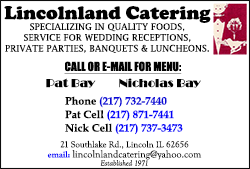|
 Later, when testimony began, a woman who says Cosby accosted her
when she was 17 looked directly at him from the witness stand
and blurted out: "You know what you did, Mr Cosby." Her break
with decorum drew a swift admonishment from the judge, but it
was too late. Jurors and reporters had been listening with rapt
attention. Later, when testimony began, a woman who says Cosby accosted her
when she was 17 looked directly at him from the witness stand
and blurted out: "You know what you did, Mr Cosby." Her break
with decorum drew a swift admonishment from the judge, but it
was too late. Jurors and reporters had been listening with rapt
attention.
In contrast to Cosby's first trial, outbursts and protests, both
inside and outside the courtroom, have unfolded as a second jury
hears the sexual assault case against the man once known as
"America's Dad." At least one protest group promises more
theatrics to come.
The attention-grabbing incidents exemplify the new sense of
outrage over sexual assault and misconduct that has boiled over
since the emergence of the #MeToo movement in the months after
Cosby's first trial ended with a hung jury in June.
“Women don’t have faith that court proceedings will bring about
actual justice,” said women’s rights activist Jaclyn Friedman, a
writer whose books include “Yes Means Yes!” "They are not
content to just let it play out."
Cosby, 80, denies all wrongdoing in the current case involving
Andrea Constand, 45, in 2004 and with any of about 50 other
women who have leveled similar accusations against him over the
years. He says that any sexual contact was consensual.
With society more willing to listen, woman have become more
inclined to speak out, said Professor Sharon Marcus of Columbia
University’s Institute for Research on Women, Gender and
Sexuality. They see the retrial as an opportunity to influence
public opinion and shape attitudes towards sexual violence.
"Women are angry about being victimized several times over: by
abusers; by legal systems that that are biased favor of men; and
by conventions that tell women to be polite and tactful but
don’t protect polite and tactful women from being harmed," she
said.


The first trial was largely bereft of demonstrations, except for
the occasional protester outside the courthouse. Only one day
during jury deliberations did women who had accused the comedian
square off on the courthouse steps against Cosby supporters
carrying signs.
So far at the retrial, any Cosby supporters have not made
themselves known outside the courtroom, except for the actor's
spokesman Andrew Wyatt, who has addressed the media.
[to top of second column] |

On the first day, the bare-breasted protester who ran at Cosby was
Nicholle Rochelle, a member of the European feminist group FEMEN and
an actress who had appeared on "The Cosby Show" as a child.
"FEMEN's action at the Cosby trial is part of a broad strategy of
hunting celebrity perpetrators and facing them with the truth," Inna
Shevchenko, the group's leader, said in an email response to
Reuters. "I won't hesitate to threaten him with constant feminism
revenge."
Five of Cosby's other accusers were allowed to testify against him
at the ongoing trial, four more than in his first trial. Constand's
accusation is the only one recent enough to be the subject of
criminal prosecution.

The outburst from the witness stand by one of the five, aspiring
actress Chelan Lasha, prompted the defense to request a mistrial,
but Judge Steven O'Neill refused.
He did the same when the defense complained about coffee cup sleeves
reading "Believe and Support Survivors" that a cafe across the
street from the courthouse was passing out. He said jurors had not
seen the slogan.
In one of several orders aimed at maintaining decorum, the court has
banned any attire inside the courtroom that would indicate support
for either side.
But that did not stop protesters outside court, including a woman
dressed in a crimson robe and white bonnet inspired by the novel
"The Handmaid's Tale," which explores misogyny and female
subjugation.
Standing at the barricades ringing the court, she held a sign
reading "Because Justice Knows No Time Limit, #EndRapeSOL" to
denounce statutes of limitations on sexual assault.
One morning before Cosby arrived for the day's proceeding, a work
crew scrubbed walkways in front of the courtroom after graffiti
artists covered them with protest slogans scrawled in chalk the
previous night.
One of them read, "Women's Rights Movement This Way," with a large
arrow pointing to the courthouse.
(Additional reporting by Joseph Ax; Writing by Barbara Goldberg in
New York; Editing by Frank McGurty and Cynthia Osterman)
[© 2018 Thomson Reuters. All rights
reserved.] Copyright 2018 Reuters. All rights reserved. This material may not be published,
broadcast, rewritten or redistributed.
Thompson Reuters is solely responsible for this content. |